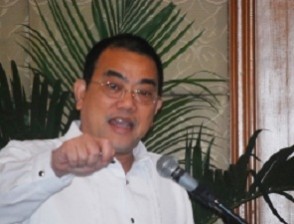MANILA, Philippines—Agrarian Reform Secretary Virgilio de los Reyes continues to enjoy President Aquino’s confidence despite criticism from bishops over his department’s “dismal” performance, Malacañang said Sunday.
Undersecretary Abigail Valte, deputy presidential spokesperson, said the President was aware that the Department of Agrarian Reform (DAR) had been left with the tough task of distributing contentious private landholdings by the previous administration.
De los Reyes “enjoys the full trust and confidence of the President,” Valte said over government-run Radyo ng Bayan.
Seventy-eight bishops had aired an urgent appeal to the President to revamp the DAR over its alleged failure to cover as much agricultural land as possible ahead of the purported June 2014 expiration of the Comprehensive Agrarian Reform Program Extension with Reforms.
The bishops said they were alarmed by the DAR’s “dismal accomplishments” less than a year and half before the program expires.
De los Reyes clarified the bishops’ misconception that the DAR could no longer distribute lands once the agrarian reform law expires and that the issuance of the certificates of land ownership was still a long way from the actual grant of the land.
He said the department could still do its job by issuing notices of coverage to landowners ahead of the deadline.
“As Secretary De los Reyes has said, 2014 will not be end of the world. As long as the notice of coverage has been issued before June 2014, then the distribution will still be entertained,” Valte said.
She added that the DAR during the previous administration acquired and distributed government-owned land, leaving the present administration to dispose of the contentious private landholdings.
“Admittedly, there are more challenges in the process of acquiring and distributing target lands,” Valte said.
According to a July 2012 DAR report, more than three-fourths of distributed lands from 1972 to 2011 were either government-owned lands or lands distributed through voluntary modes of acquisition, or lands that were easier, less tedious to cover.
What’s left to cover are mostly private agricultural lands, with close to 80 percent being compensable by the Land Bank of the Philippines and 60 percent requiring coverage by compulsory acquisition, the report said.
